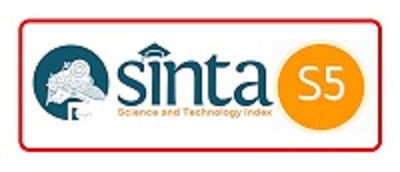Software Dalam Tinjauan Akuntansi Berdasarkan SAP No.14
DOI:
https://doi.org/10.29240/disclosure.v3i2.7152Keywords:
Intangible Assets, Software, Government Accounting StandardsAbstract
The development of Government Accounting in Indonesia is lacking in responding to the demands of current developments. The output produced by government accounting in Indonesia cannot be said to be accurate and does not match what it should be, so it cannot be used for decision making. The issuance of Government Regulation no. 71 of 2010 concerning Government Accounting Standards replacing Government Regulation no. 24 of 2005 where this new regulation requires central and regional governments to use accrual-based accounting. Based on this Government Regulation, central and regional governments must use fully accrual-based accounting and not use cash-based accounting that leads to accruals. The aim of this research is to identify how accounting is treated for software at the One-Stop Integrated Services and Manpower Investment Service (PM PTSP and NAKER) based on SAP No. 14 regarding intangible assets. The research method is to use a qualitative method using a descriptive approach by collecting data in the form of observations, interviews and documentation. The results of the research prove that the accounting treatment of software in the Department of Investment, One-Stop Integrated Services and Labor located in Tanah Datar Regency where there is one software, namely SIPINTAR (Taland Datar Licensing Information System), for this SIPINTAR can be identified as an asset. In the form of the service and the acquisition costs for the SIPINTAR software, it meets the provisions of Government Accounting Standards.
Downloads
References
Baswir, R. (1995). Akuntansi Pemerintahan Indonesia, Cetakan Ketiga.
BPK. (2010). Peraturan Pemerintah Republik Indonesia Nomor 71 Tahun 2010 tentang Standar Akuntansi Pemerintah (SAP). https://doi.org/10.1017/CBO9781107415324.004
Dewi, P. A. P. L., Animah, A., & Mariadi, Y. (2021). Efektivitas Penerapan Sistem Informasi Manajemen Daerah (SIMDA) untuk Pengelolaan Keuangan. Valid: Jurnal Ilmiah, 19(1), 72–86. https://doi.org/10.53512/valid.v19i1.195
Fadli, M. R. (2021). Memahami desain metode penelitian kualitatif. Humanika, 21(1), 33–54. https://doi.org/10.21831/hum.v21i1.38075
Firmansyah, A., Kurnia Sari, A., & Putri Maharani, Y. (2020). IMPLEMENTASI ASET TAK BERWUJUD PT. TELEKOMUNIKASI INDONESIA (Persero) Tbk. Bisnis-Net Jurnal Ekonomi Dan Bisnis, 3(1), 52–61. https://jurnal.dharmawangsa.ac.id/index.php/bisnet/article/view/689
Hisamuddin, N. (2018). Transparansi Dan Pelaporan Keuangan Lembaga Zakat. ZISWAF : Jurnal Zakat Dan Wakaf, 4(2), 327. https://doi.org/10.21043/ziswaf.v4i2.3049
Intan, R. (2020). Bab I .... ï»¢ï» ïº³Ùˆ ï®«ï¯¿ï» ï»‹ ï·² ï»°ï» ïº» ﻲ ï± Ù ïº’ï± ï»¨ï»ŸØ§ ﺎ ÙŽ ﻨ ﯿ Ù’ ÙŽ ÙŽ ر ﺎ ÙŽ ﻤ ï»› ÙŽ Ø§ï»®ï±¡ï» ÙŽ ﺻ ÙŽ Ùˆ. Bab I, 2019, 1–16.
Kamal, M., & Lubis, E. (2020). Perlindungan Hukum Atas Logo Instansi Pemerintah : Hukum Kekayaan Intelektual Versus Hukum Keuangan Negara. Living Law, 11, 87–95.
Kamasan, W., Raka, A. A. G., & Sumada, I. M. (2019). Implementasi Kebijakan Pengelolaan Keuangan Daerah Berbasis Akrual Pada Badan Kepegawaian Dan Pengembangan Sumber Daya Manusia Di Pemerintah Kabupaten Badung. Public Inspiration: Jurnal Administrasi Publik, 4(1), 39–46. https://www.ejournal.warmadewa.ac.id/index.php/public-inspiration/article/view/1272
Koagouw, E. H., Manossoh, H., Wokas, H. R. N., Akuntansi, J., Ekonomi, F., & Sam, U. (2023). Evaluasi Penerapan PSAP NO . 07 Tentang Akuntansi Aset Tetap Pada Dinas Perindustrian Dan Perdagangan Daerah Provinsi Sulawesi Utara Evaluation of PSAP NO . 07 Regarding Accounting for Fixed Assets Province. 6(2), 3–4.
Komite Standar Akuntansi Pemerintahan. (2021). Buku Standar Akuntansi Pemerintah 2021. STANDAR AKUNTANSI PEMERINTAHAN Republik Indonesia, 1–391.
Nordiawan, D., Putra, I. S., & Rahmawati, M. (2018). Akuntansi Pemerintahan.
Nugraha, R., & Kristanto, A. B. (2019). FAKTOR-FAKTOR YANG MEMPENGARUHI PEMANFAATAN TAX HAVEN. 9(2), 160–171.
Peraturan Menteri Keuangan Republik Indonesia Nomor 90. (2019). PERATURAN MENTERI KEUANGAN REPUBLIK INDONESIA NOMOR 90/PMK. 05/2019.
Putri, R. A. F., Sari, Y. P., & Sulistyowati, D. (2016). Analisis Perlakuan Akuntansi Aset Tetap Berdasarkan Pernyataan Standar Akuntansi Pemerintahan No 07 pada Badan Penanggulangan Bencana Daerah Kabupaten Tegal. Politeknik Negeri Jakarta, 07, 508–513.
Ramdani, E., & Agustina, N. (2019). Pengaruh Penerapan Standar Akuntansi Pemerintah Keuangan Pemerintah Daerah Kabupaten Aceh Utara. Jurnal Akuntansi Dan Pembangunan, 5, 1–10.
SAP. (2021). Standar Akuntansi Pemerintahan. Komite Standar Akuntansi Pemerintahan, 71, 160–173. https://www.ksap.org/sap/wp-content/uploads/2021/07/Buku-SAP-2021-1.pdf
Soraya, L. (2013). Pengaruh Aset Tidak Berwujud Dan Penelitian Dan Pengembangan Terhadap Nilai Pasar Perusahaan. Dissertation, 1–59.
Wirananda, I. G. A. S., Kindangen, W. D., Aplikasi, E., Informasi, S., Dan, M., Barang, A., Akuntansi, J., & Ekonomi, F. (2021). PROVINSI SULAWESI UTARA EVALUATION OF MANAGEMENT INFORMATION SYSTEM AND ACCOUNTING FOR STATE PROPERTY APPLICATION AT THE REGIONAL INDUSTRY AND TRADE OFFICE OF Jurnal EMBA Vol . 9 No . 3 Juli 2021 , Hal 902 - 908. 9(3), 902–908.
Zelmiyanti, O. R. (2015). Perkembangan Akuntansi Berbasis Akrual Pada Sektor Pemerintah Di Indonesia. Jrak, 6(1), 68–72.
Downloads
Published
How to Cite
Issue
Section
Citation Check
License
Authors who publish with this journal agree to the following terms:
- Authors retain copyright and grant the journal right of first publication with the work simultaneously licensed under a Creative Commons Attribution License (CC BY-NC-SA 4.0) that allows others to share the work with an acknowledgment of the work's authorship and initial publication in this journal.
- Authors are able to enter into separate, additional contractual arrangements for the non-exclusive distribution of the journal's published version of the work (e.g., post it to an institutional repository or publish it in a book), with an acknowledgment of its initial publication in this journal.
- Authors are permitted and encouraged to post their work online (e.g., in institutional repositories or on their website) prior to and during the submission process, as it can lead to productive exchanges, as well as earlier and greater citation of published work (See The Effect of Open Access).






